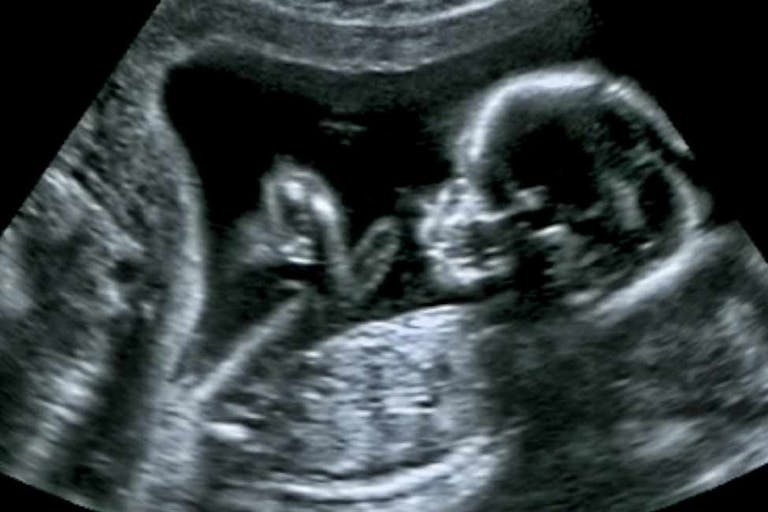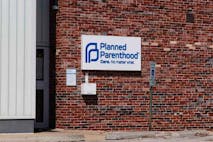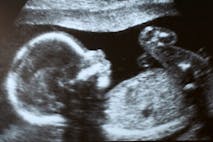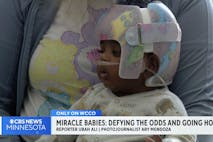
Christian college allows pro-life club after resolving 'misunderstanding'
Bridget Sielicki
·
Despite Supreme Court ruling, states continue assault on pregnancy centers
Over the past few decades, pro-life pregnancy centers have come to vastly outnumber abortion facilities in the United States. Their daily provision of high-quality services to women in need chips away at the grand deception that Planned Parenthood and NARAL rely on most: that abortion advocates care more about women and their health. Yet the success of pro-life pregnancy centers has led pro-abortion state and city governments around the country to try to pass laws to put them out of business. These attacks, rooted in misinformation and deception about the nature of pro-life pregnancy centers, have grown in frequency and intensity in recent years.
READ: Busted: NARAL’s deceptive claims about ‘deceptive’ crisis pregnancy center ads
Here are some of the most egregious examples in states and cities around the country:
California
In 2016, California’s Reproductive FACT Act tried to make pro-life pregnancy centers effectively advertise for the state’s abortion industry. The law, which was successfully challenged by the American Center for Law and Justice (ACLJ), would have required pro-life centers to “disseminate” the following notice:
“California has public programs that provide immediate free or low-cost access to comprehensive family planning services (including all FDA-approved methods of contraception), prenatal care, and abortion for eligible women. To determine whether you qualify, contact the county social services office at [insert the telephone number].”
In June 2018, the Supreme Court ruled against the law in its NIFLA v. Becerra decision, sending the case back to the district court. In November 2018, the district court blocked enforcement of the law “under the free speech clause of the First Amendment.”
Maryland
According to NARAL, the City of Baltimore was the first state or local government to enact restrictions targeting pro-life pregnancy centers and served as a model for subsequent legislative initiatives around the country. Baltimore’s ordinance, enacted in 2009, required pro-life pregnancy help centers to post signs stating that they do not offer or refer for abortions, with fines of $150 daily for a failure to comply.
The ordinance was struck down by the Fourth Circuit in January 2018 after almost a decade of legal battles, and the City of Baltimore finally agreed to settle for $1.1 million only after the NIFLA v. Becerra decision in June 2018. In a sign of how central the anti-pregnancy center initiatives are to the abortion agenda, Baltimore’s former health commissioner — who was responsible for overseeing the implementation the law — is Planned Parenthood’s new president, Leana Wen.
READ: Analysis: Abortion facilities have history of deceptive counseling
Illinois
Article continues below
Dear Reader,
Have you ever wanted to share the miracle of human development with little ones? Live Action is proud to present the "Baby Olivia" board book, which presents the content of Live Action's "Baby Olivia" fetal development video in a fun, new format. It's perfect for helping little minds understand the complex and beautiful process of human development in the womb.
Receive our brand new Baby Olivia board book when you give a one-time gift of $30 or more (or begin a new monthly gift of $15 or more).
SB 1564 required pro-life pregnancy centers to “inform patients about all available medical options, including abortion and contraception,” and to refer for abortions if requested. The law went into effect on January 1, 2017, and a preliminary injunction granted in July 2017 afforded broad protections until a final decision is reached, temporarily enabling the vital work of pro-life pregnancy centers in Illinois to continue. Nevertheless, the fate of pro-life pregnancy centers remains in jeopardy.
In the aftermath of the NIFLA v. Becerra ruling, Illinois’ Attorney General argued that SB 1564 could remain constitutionally viable. The law is “different in a significant way,” the attorney general’s spokeswoman, Maura Possley, told the Chicago Tribune. “As a result, it’s speculation to declare how the courts will ultimately rule on the Illinois law.”
Connecticut
The 2018 elections in Connecticut swept in an even more abortion-friendly state legislature, and state lawmakers — spurred on by NARAL — are engaging in preliminary discussions about enacting restrictions on pro-life pregnancy centers. Any such legislation likely will draw inspiration from the City of Hartford’s precedent. On October 1, 2018, after its review of the legal implications of NIFLA v. Becerra decision, Hartford enacted an ordinance requiring pro-life pregnancy centers to post a sign stating, “This facility does not have a licensed medical provider on site to provide or supervise all services.”
Washington
As of July 2017, pro-life pregnancy help centers in King County, Washington, are required to post a sign stating, “This facility is not a healthcare facility” in 10 languages. King County officials have stated they are confident that the NIFLA v. Becerra decision does not restrict their ability to enforce the law.
Michigan
The 2018 elections in Michigan resulted in setbacks for the pro-life cause. Not only did Michiganders elect a pro-abortion governor, they also elected as attorney general NARAL-endorsed Dana Nessel, who campaigned on not enforcing pro-life laws and “shutting down scam pregnancy crisis centers.” The election came on the heels of a legislative proposal in 2018 by formerly pro-life Democrat Rep. Brian Elder to compel pro-life pregnancy centers to post large, conspicuous notices in ads, at the entrance, and in each room indicating that they are an “unlicensed facility.”
New Jersey
In November 2018, A4399 and S2983 were introduced in the General Assembly and Senate, respectively. The bills would effectively prohibit many pro-life pregnancy help centers from offering ultrasounds by requiring a licensed healthcare professional, rather than the certified sonographers that most use. Making it even more apparent that the aim is to directly cripple the work of pregnancy centers, abortion facilities would be excluded from this mandate.
READ: Planned Parenthood gave woman seeking abortion a deceptive ultrasound
As pro-life pregnancy help centers continue to expose the lies about abortion, abortion activists will undoubtedly keep mounting fresh attacks in states and localities where they have abortion-friendly majorities. Although NIFLA v. Becerra marked a major victory for pregnancy centers, abortion activists are not ready to concede. NARAL has already indicated that it plans to seek “new and creative approaches to addressing” pregnancy centers, to include “public education, eliminating state public funding of fake health centers, and addressing unethical behavior of licensed healthcare professionals who work in them.”
Live Action News is pro-life news and commentary from a pro-life perspective.
Contact editor@liveaction.org for questions, corrections, or if you are seeking permission to reprint any Live Action News content.
Guest Articles: To submit a guest article to Live Action News, email editor@liveaction.org with an attached Word document of 800-1000 words. Please also attach any photos relevant to your submission if applicable. If your submission is accepted for publication, you will be notified within three weeks. Guest articles are not compensated (see our Open License Agreement). Thank you for your interest in Live Action News!

Bridget Sielicki
·
Analysis
Angeline Tan
·
Analysis
Cassy Cooke
·
Politics
Madison Evans
·
Opinion
Nancy Flanders
·
Investigative
Carole Novielli
·
Human Interest
Laura Nicole
·
Human Interest
Laura Nicole
·
Newsbreak
Laura Nicole
·
Human Interest
Laura Nicole
·
Human Interest
Laura Nicole
·